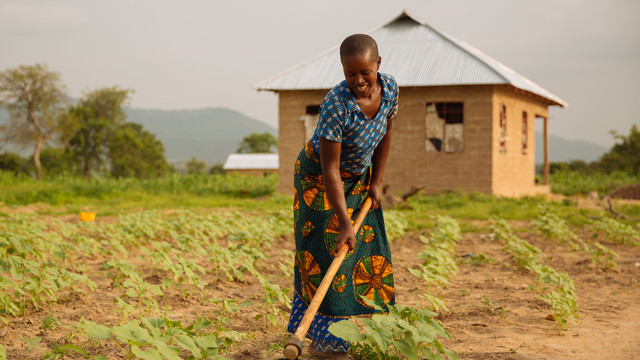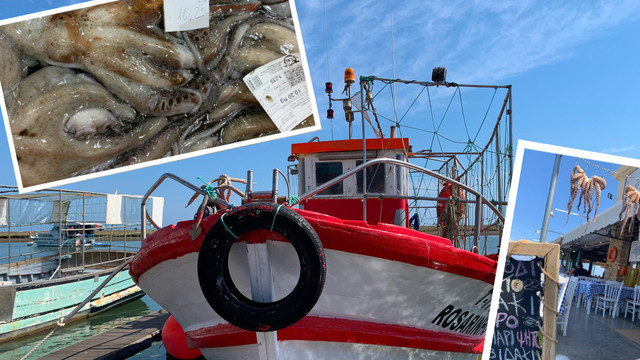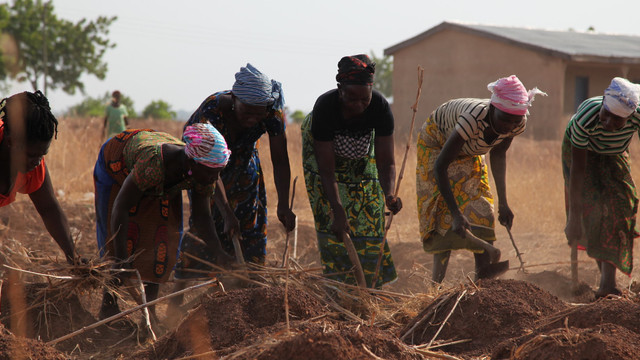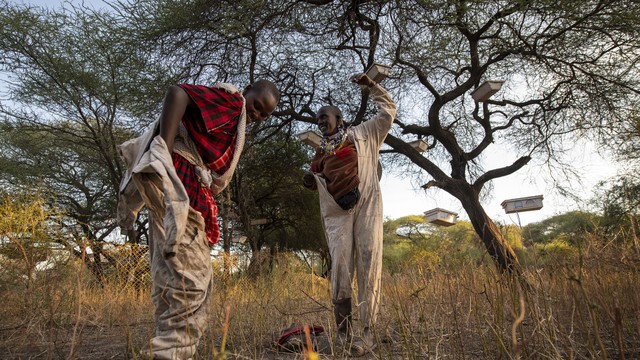Advancing gender equity through women producers’ exchange platform
IIED is strengthening gender equity and the agency of rural women producers through the Forest and Farm Facility.

Women's bank savings groups, Sri Lanka (Photo: copyright Sevanatha)
Despite major progress in reducing overall global poverty levels, new research shows a ‘feminisation’ of poverty, meaning that women are at greater risk of slipping into or remaining in poverty.
This is especially true in the agriculture and forest sectors of the global South. Even though women play important roles along agricultural and forest value chains, they suffer large gender inequalities in access to agricultural assets, inputs, services, new technology, education, information, markets, rights and legal protection, networks and decision-making processes.
They also have less control of the products and income from their sale. This causes large costs to their countries, communities and households.
The Forest and Farm Facility (FFF) focuses on strengthening forest and farm producer organisations (FFPOs). Formal and informal producer organisations can help rural communities overcome poverty and facilitate their access to resources, assets, markets and services.
Women-only producer organisations can be crucial where existing producer organisations are restricted to men or where it is culturally not foreseen for men and women to sit together and jointly negotiate and make decisions. However, women-only groups often remain limited to the local level.
In mixed organisations on the other hand, women may be well represented as members, but few of them occupy leadership positions. Generally, women are often excluded or poorly represented in such organisations, which tends to reinforce existing gender inequalities.
Agency through entrepreneurship
Finding ways to reconcile family and work life is a challenge for working women everywhere. But greater empowerment of women can lead to greater public investments in childcare, education and health. In turn, this has many positive effects on women’s livelihoods and wellbeing.
Issues of gender often touch on deeply sensitive and controversial topics, including division of labour at the family level or the treatment of gender by religion. However, gender equality in business is often a more acceptable entry point for reducing women’s vulnerability and empowering their status within organisations and households.
Women’s economic empowerment through entrepreneurship is an entry point to other forms of empowerment. It is also one of the most important factors contributing to equality between women and men.
The economic empowerment of women is considered essential for poverty reduction and sustainable economic development. The enhancement of gender equity and women’s agency is one of FFF’s core cross-cutting themes.
Guided by women leaders
As part of its gender strategy, the FFF aims to offer opportunities that allow women producers to take part in peer-to-peer (women-to-women) sessions to exchange knowledge and experiences and to enable for greater economic empowerment.
While the challenges for women’s economic development are manifold, FFF acknowledges that many trailblazing women producers and producer organisations in its extended network may offer valuable lessons to their peers. It is in this spirit that FFF-IIED is working with women leaders of these organisations to initiate a global rural women producers’ exchange platform.
One such leading organisation is India’s Self-Employed Women's Association (SEWA), which works to economically empower women.
IIED will work closely with women leaders of FFPOs, NGOs, exchange programmes and the private sector across Africa, Asia and Latin America within the wider FFF network to guide the implementation of the FFF gender strategy and develop an exchange platform.
A series of dialogues
As one of the implementing partners of FFF, IIED is hosting an online dialogue series for women-led or majority women FFPOs.
The aim is to create a space for women producers, entrepreneurs and leaders to connect with each other, share and exchange experiences and ideas, and support and inspire one another around women’s empowerment in their own contexts.
Each dialogue focuses on a topic around rural women producers’ agency and entrepreneurship, and will feature case study presentations by invited speakers, the opportunity for conversations in small circles and facilitated discussions.
Dialogue 1 (30 March 2023)
The first online dialogue unpacked entrepreneurial and leadership mentoring and peer-to-peer learning as valuable approaches for providing guidance and support, networking opportunities, skill development, confidence building and accountability to self-set goals and commitments for aspiring women entrepreneurs and leaders.
Three such initiatives were introduced:
- The Manager ni School, an initiative of SEWA, which aims to help its many women microentrepreneur members develop leadership and business skills
- The Women Leadership Circles in Agriculture & Natural Resource Management, an initiative implemented by the African Women’s Network for Community Management of Forests (REFACOF) in Cameroon, providing peer-to-peer mentoring for advocacy leadership, and
- The capacity development work of the Women’s Association of Deir El Ahmar (WADA), member of the WeCaN Nurturing Community of Knowledge Practice for Women network in dryland forests and agrosilvopastoral systems.
In group discussions the participants collectively generated a range of recommendations on how women producer organisations, businesses and leaders could be supported.
The solutions that mentorship and peer-to-peer learning services offer to address common challenges for women entrepreneurs are shown in this infographic, designed to be used by FFPOs and their support partners in advocating for and developing such services.
Click on the image to expand it. This infographic shows the solutions offered by mentorship and peer-to-peer learning for women entrepreneurs and leaders. You can also view the infographic on IIED's Flickr account.
Dialogue 2 (1 February 2024)
The second online dialogue explored how digital technologies can become useful tools in advancing the cause of women producers, entrepreneurs and leaders in rural areas of the global South.
More than 30 women representatives of majority women or women-led FFPOs actively participated in the dialogue.
With the intent to inspire participants to reflect on the usefulness of a range of digital tools in their own contexts, three speakers introduced seven innovative digital technologies used either by women producers and entrepreneurs themselves or by support organisations in their efforts to advance women’s equity.
The initiatives presented included four digital technology tools developed by the Self-Employed Women’s Association (SEWA) in India, including the:
- SEWA mobile membership management system
- RUDI Sandesha Vyavhar mobile business application for logistics management and marketing of SEWA owned RUDI branded products
- SEWA mBachat mobile savings application, and
- SEWA Bazaar, the digital social enterprise used to sell SEWA members’ products imbuing SEWA values and ethics.
There was a digital traceability system using QR codes and a mobile production diary application to support the Tu Nhien Cooperative (Viet Nam) members’ safe vegetable production and to boost their products’ market value, plus digital tools developed by the Rainforest Foundation UK to aid communities and women claim their land rights (MappingForRights and Haki Ardhi).
After the presentations, participants discussed in smaller groups challenges and solutions based on their individual experiences around digital information and communication tools, and how these can realistically be put to use to close the gender gap.
Dialogue participants collectively identified a range of potential applications of digital tools that have the promise of advancing women producers and catalysing change. These included:
- Agricultural e-commerce platforms can, for example, boost women's economic initiatives by raising awareness of and enabling access to non-local markets, by enabling collective marketing and formal contract negotiations, and by increasing incomes through a broader customer base, access to information on market trends and customer preferences.
- Digital financial services can further inclusion and financial independence for women by helping to overcome geographical distances to financial service providers. Access to financial services can in turn aid in formalising budding businesses and help build credit histories necessary for larger loans. Digital accounting tools further offer the opportunity to improve the financial management of local credit mechanism.
- Digital capacity building tools can support skill development for women who are often forced to cut their formal education short, for example by connecting women through mobile phones to mentorship services or by enhancing access to extension and advisory services to women via mobile phones. This in turn increases agricultural productivity and women’s confidence, as well as gender equity within households and communities.
- Vital decision-making processes linked to agricultural and forest production may be significantly improved through access to timely weather forecasts and disaster warning systems.
- Online networking and collaboration between women who might be geographically too distant to meet in person - being often more bound to their households compared with men due to the traditional distribution of roles and responsibilities - enhances collective action and organisation of women. A united voice may in turn bring about greater visibility and recognition of women’s contributions in their communities.
- Established women organisations’ may amplify their messages and inform a wider public about their activities and services for their women members through digital media. Increasing their outreach in this way allows organisations to grow their membership and increase their influence on decision making processes that touch on their members’ interests.
- Digital tools allow in general for greater flexibility and time savings that allow for easier accommodation of the triple responsibility of women in productive, reproductive and community roles.
- Mastering ICT tools can boost confidence and social standing of women within their households and communities.
While the discussions during the dialogue focused on gender specific benefits of digital tools and services, a number of potential, useful applications for men and women producers and their organisations were also identified. These included how:
- Using digital tools as repository of membership and other information enables FFPOs to increase their efficiency in responding to calls for proposals for which such information is required, increasing their members’ opportunities for external support.
- Digital technologies may also help producers minimise production costs through, for example, lowering post-harvest losses through digital monitoring of appropriate storage conditions in warehouses.
- The development of digital maps of FFPO-managed landscapes can render relevant information of relevance for community management and development available for planning and decision making processes.
Dialogue participants also observed some common challenges they experienced in the development of digital tools and services in their respective organisations and collectively elaborated suggestions on how to overcome these.
These included how learning to use digital tools can be a challenge for rural women producers when there is a lack of continuous capacity building and support. Digital tools that are based on less complex technologies can therefore often be more valuable and enhance accessibility (such as using mobile phones that are not smartphones).
The presented case studies highlighted that women may acquire new skills in multiple, sometimes informal ways including through their more technologically-savvy children and through collective learning in groups in which women can motivate each other. Any approach to further the uptake of digital tools among women forest and farm producers should therefore be inclusive, encourage knowledge exchange and integrate the youth.
Engaging young people in digitisation strategies may also be useful in encouraging their involvement in the organisational structures of producer organisations and to motivate against rural outmigration.
Digitalisation processes also vary with their contexts. Rural areas in the global South in particular present unique challenges, with rural women facing additional challenges compared to their male peers, in the form of limited access to infrastructure, low literacy rates and socioeconomic inequalities.
The development of digital tools and services should therefore be carried out in respect of the specific territorial context using participatory and adaptive approaches that emphasise community and collective development.
New digital tools and services may also carry risks for their users. For example, online product traceability systems store a wealth of information on individual producers and sensitive data may be exposed if appropriate security measures are not implemented.
It is therefore vital to design digital tools adapted to their intended users’ needs and capacities and to offer tailored training programs as well as ongoing support to mitigate any risks they may carry.
Further reading
How ICT is empowering women entrepreneurs in Vietnam: a case study of Tu Nhien Cooperative (2024), Nguyen Huu Nhuan, report
How information technology is empowering the women of SEWA in India (2024), Varsha Mehta, report
Strengthening the role of women in agriculture and natural resource management, Rose Pélagie Masso (2023), Project report
Empowering producer women through peer-learning and mentorship, Varsha Mehta (2023), Project report
Blog: Empowering women forest and farm producers: learning from the best, by Isabela Núñez del Prado Nieto (March 2023)
Contact
Kata Wagner (kata.wagner@iied.org), researcher (forests and prosperity), IIED's Natural Resources research group





